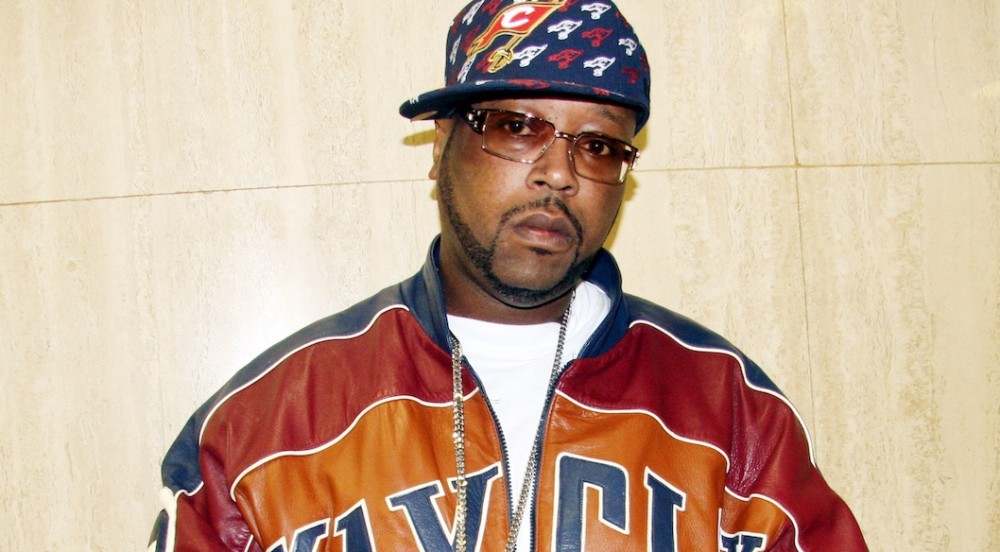Historically, the Black barbershop plays multiple roles: therapy office, town square, masculine safe space. On Easter Sunday, April 17, I sat in a hydraulic highchair mourning the death that day of DJ Kay Slay. “Slay held it down in the prisons,” said my Harlem-based barber, clipper in hand as speakers pumped the late DJ’s Hot 97 radio show, The Drama Hour. Volunteering fresh fades to Rikers Island inmates for the past few months, he knew of what he spoke: for the prisoners, The Drama Hour was sacred. So many other longstanding fans felt the same.
Keith Grayson—first known as graffiti artist Spade 429, then Dez TFA, and eventually DJ Kay Slay—died of prolonged COVID-19 complications at 55. Crowning himself the Drama King on mixtapes dating back to the 1990s, he provided platforms for Nas, 50 Cent and others to advance competitive rap conflicts against rival MCs. His legacy in hip-hop spans from an appearance in the hip-hop documentary Style Wars to his final StreetSweeper Radio recordings of 2021. His influence extends from disciples like DJ Drama and DJ Whoo Kid to former rival DJ Clue.
Born in New York City on August 14, 1966, and raised in the East River Houses of East Harlem, the young hip-hop lover often hopped uptown 6 trains to the Bronx for sets by legendary DJs like Afrika Bambaataa. Coming of age in the embryonic period of hip-hop, the future Kay Slay participated in every facet of the bourgeoning culture. He emceed with his crew of friends; he practiced backspins and windmills on slabs of cardboard boxes B-boying (aka breakdancing). Bombing subway trains as a teenager, he gained early widespread respect under the name Dezzy Dez. But deejaying soon became his true calling.
A detour into street crime led the rookie stick-up kid to a year-long incarceration in 1989 for drug possession. Upon his release, he poured his creative energy into a pair of Technics turntables and the creation of a home studio, financed by working at a Bronx facility supporting people afflicted with H.I.V. and AIDS. Navigating the early days of mixtapes—combining music industry relationships, an ear for talent scouting and his own ad-libbed bravado—DJ Kay Slay quickly rose to kingmaker status among peers like DJ Envy and DJ Clue. In this mid-’90s era, mixtapes (CDs unsanctioned by the music industry at large and sold by local street vendors) often broke new artists and provided established rappers a side channel for freestyle rhymes that kept their names relevant.
Placement on a DJ Kay Slay mixtape provided street currency that reached a new apex in 2001, with the debut of Nas’ “Ether” (first featured on Slay’s Renegades Pt. 3.5 mixtape). Nas’ response to Jay-Z’s own dis recording, “Takeover,” marked a significant moment in one of the greatest rap beefs of all time—courtesy of Kay Slay. A job recommendation from legendary DJ Funkmaster Flex had already resulted in the debut of The Drama Hour, Slay’s 60-minute showcase on the prominent New York City radio station Hot 97 (WQHT 97.1 FM). Between his mixtape dominance on the streets and his daily radio show on citywide airwaves, DJ Kay Slay created a rock-solid brand which shined a spotlight on the likes of 50 Cent, the Diplomats and Papoose.
Though he long shunned the mainstream recording industry, Kay Slay eventually collaborated with Columbia Records in 2003 with the first of six studio albums, The Streetsweeper, Vol. 1 (a template for the eventual Grammy-level success of DJ Khaled). Slay’s most impressive trilogy of productions—“Rolling 25 Deep,” “Rolling 50 Deep” and “Rolling 110 Deep”—featured scads of rappers on increasingly long posse cuts, including the likes of Black Thought, Ghostface Killah, Grandmaster Caz and Stack Bundles. His singular empire even included a magazine, Straight Stuntin, parading scantily clad models of color on its covers.
Six months back, a few blocks from my Harlem barbershop, infamous gangster Alberto “Alpo” Martinez was murdered driving his truck down Eighth Avenue late one night. Alpo once hosted a Kay Slay mixtape in 2000, further ingratiating the DJ with the African-American prison community. Sweeping hair off my neck, my barber recalled DJ Kay Slay regularly reading off a roll call of state prisons on The Drama Hour, inmates telling him how much they appreciated the recognition. Slay’s battle with the coronavirus, first reported by his manager in January, elicited prayers from fans who all hoped against a fatal end to his months-long battle. Long live the Drama King.













